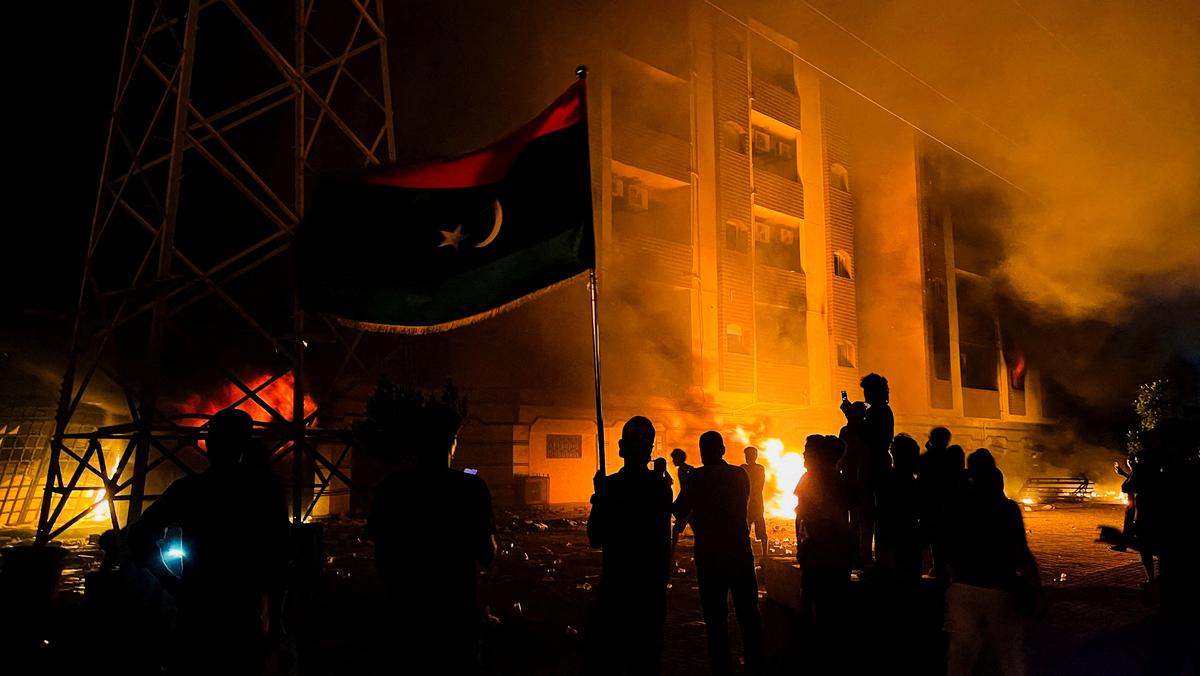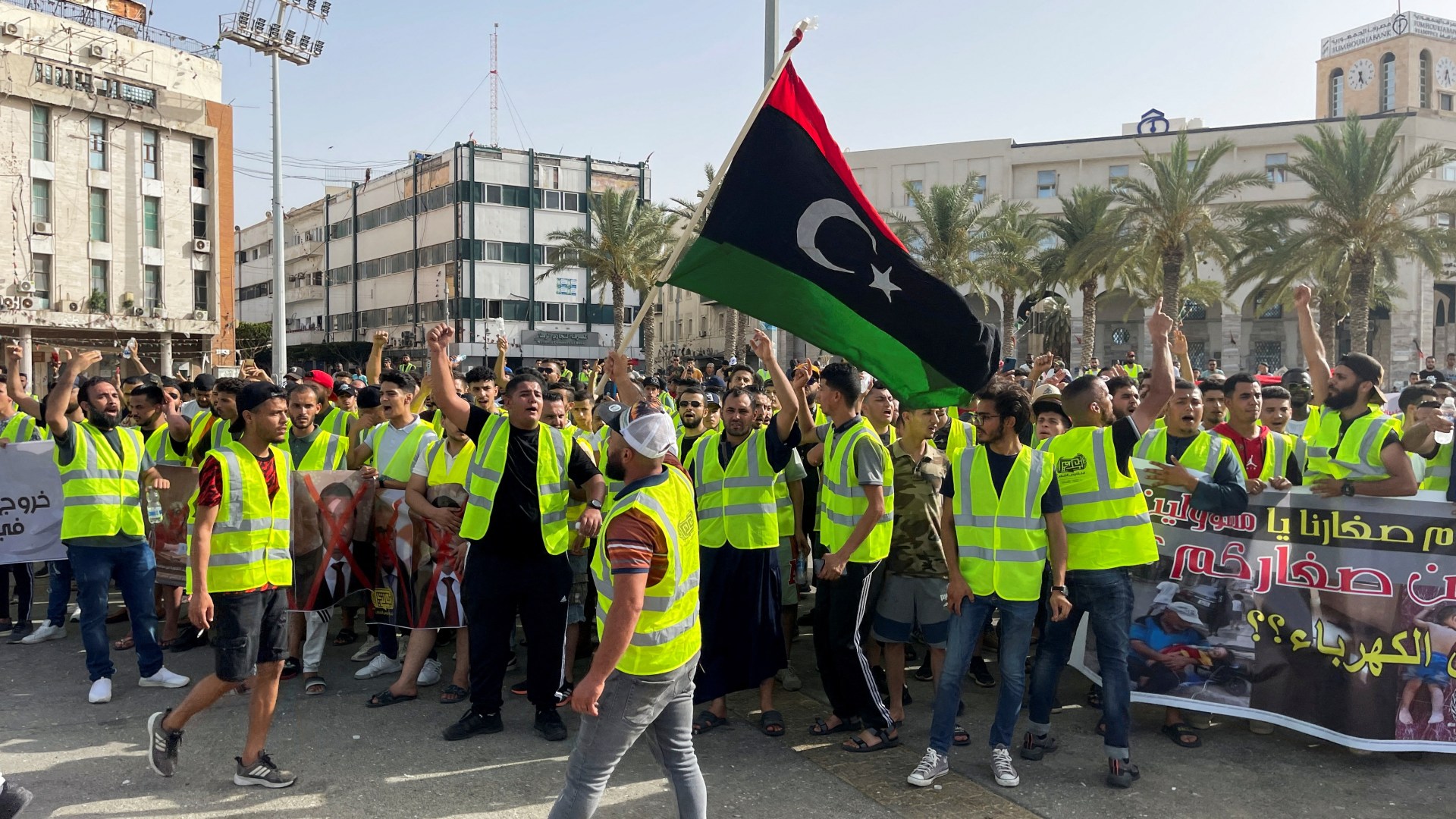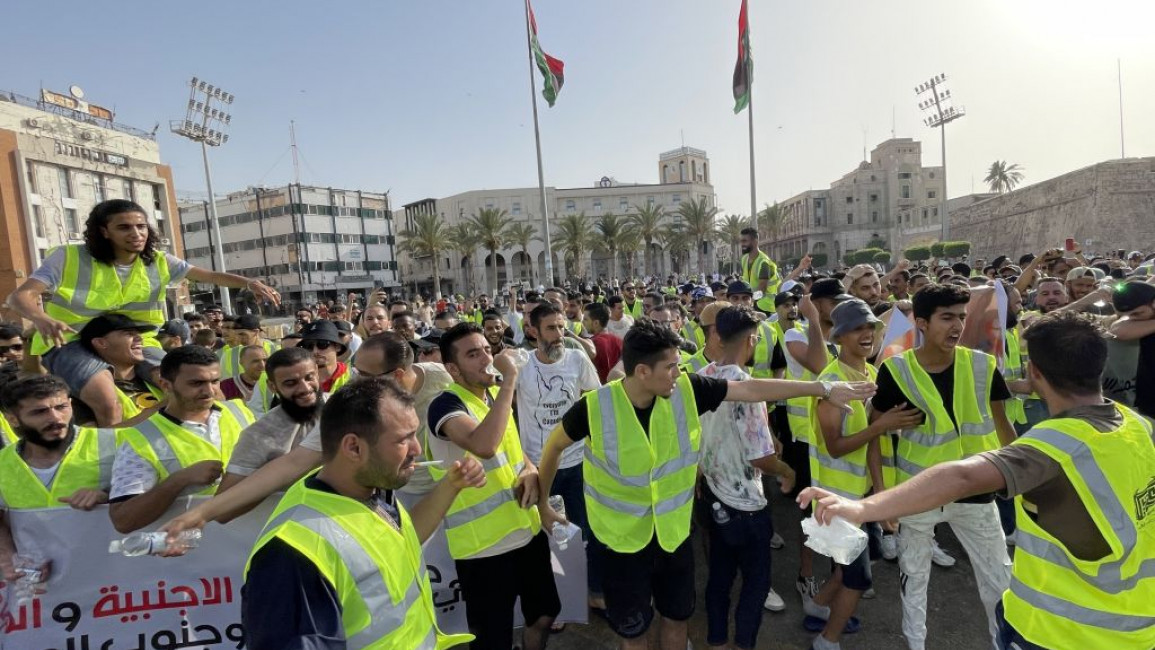Libyan Protests stormed in and set fire to the parliament building. The protests were against deteriorating living conditions and months of political impasse.
Protesters stormed Libya’s congress in the eastern megacity of Tobruk on July 1 and set the corridor ablaze, venting their wrathfulness at deteriorating living conditions and months of political impasse.
The Black Bank bagged as men burned tyres and burned buses after one protester had smashed through the emulsion gate with a bulldozer and others attacked the walls with construction tools, original media reported.
The structure was empty, as Friday fell on a weekend in Libya.
Libya’s House of Representatives has been grounded in Tobruk, more than a thousand kilometres (600 long hauls) east of the capital Tripoli, since an east-west schism in 2014 that came three times after a mass popular revolution stumbled oppressor Moamer Kadhafi.
A separate council, formally known as the High Council of State, is grounded in Tripoli as the oil-rich North

African country remains divided between rival administrations fighting for control.
Libya, sweltering in the summer heat, has endured days of power cuts—a situation worsened by the loss of crucial oil painting installations amid the settled political battles.
Protests for development
We want the lights to work,” chanted protesters, some of whom were brandishing the green flags of the Kadhafi government.
The congress condemned the “acts of vandalism and the burning” of its headquarters.
In the meantime, the interim high minister of the Tripoli-based government, Abdulhamid Dabbah, raised support for the protesters’ enterprise in a Twitter communication.
For months, two governments have vied for power in Libya: one based in Tripoli and led by Mr. Dabbah, and the other led by former minister Fathi Bashagha, appointed by the Congress and backed by eastern-based tyrant Khalifa Haftar.
Presidential and administrative choices, first set for last December, were meant to limit a UN-led peace process following the end of the last major round of violence in 2020.
But the vote was not held due to several contentious educations and deep dissensions over the pates’ legal basis between the rival power centers.

The UN angle
The United Nations on June 30 said that addresses between the rival Libyan institutions aimed at breaking the impasse had failed to resolve crucial differences.
Aguila Saleh and High Council of State president Khaled al-Mishri met at the UN in Geneva for three days of addresses to bandy a draught indigenous frame for choices.
While some progress was made, it wasn’t enough to move forward towards choices, with the two sides still at odds over who could stand in a presidential vote, said the U.N.’s top Libya envoy, Stephanie Williams.
The prospect of choice appears as distant as ever since the Congress appointed Bashagha, arguing that Dabbah’s accreditation had expired.
After Bashagha failed to enter Tripoli in May, the rival administration took up office further east in Sirte, Gaddafi’s littoral birthplace.
Recent weeks have seen repeated skirmishes between fortified groups in Tripoli, evoking fears of a return to full-scale conflict.
Demonstrators rallied in other metropolises on Friday, including Tripoli, where protesters held up crossed-out images of both Dabbah and Bashagha.

“Popular demurrers have erupted across Libya in exasperation at a collapsing quality of life, the entire political class who manufactured it, and the UN who indulged them over delivering promised change,” tweeted Tarek Megerisi of the European Council on Foreign Relations.
“The effects are escalating quickly, and the response will define Libya’s summer.”
Libya’s National Oil Corporation blazed on June 30 losses of more than $3.5 billion from closures and declared force majeure on some spots, a measure freeing it of contractual scores due to circumstances beyond its control.
The NOC said the affair “dropped sharply” and exports had fallen to,000-,000 barrels per day, a loss of,000 bpd compared with the normal before April.
Major oil painting installations are under the control of Haftar’s forces.
A drop in gas products has contributed to Libya’s habitual power cuts, which can last around 12 hours a day.
Read More: Shifting alliances in Libya ignite bloodshed, putting civilians in the crossfire












